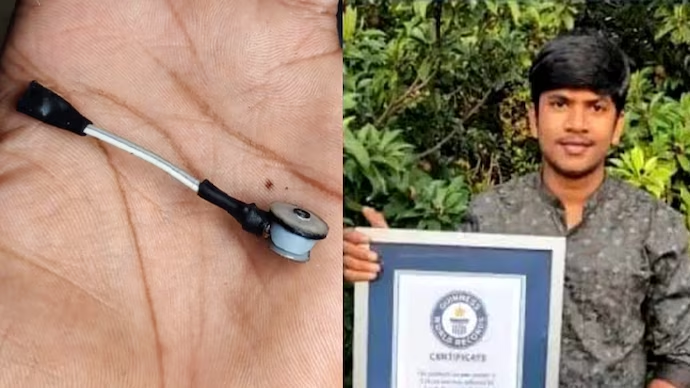From chips to pets: How AI is shaping veterinary care
What would have taken a veterinarian a long time to diagnose is now finished in moments, making the process faster and easier for pet owners to understand.

South Korea, well-known for its leadership in the production of high-tech semiconductors and AI systems, is now extending its knowledge to an unexpected field: pet healthcare. The AI system known as “X Calibre” is changing the way vets work by analysing X-rays in seconds and providing very accurate results. What would have taken a veterinarian a long time to diagnose is now finished in moments, making the process faster and easier for pet owners to understand.
When Mozzi, a five-year-old goldendoodle’s X-rays were analysed by the AI, the system predicted a 22% chance of knee dislocation. While not an emergency, the diagnosis indicated that Mozzi’s condition needed careful monitoring to avoid surgery. The dog’s owner, Mo Jae-hyun, while speaking to AFP was astounded by how the AI helped him understand his dog’s health problem.
In his words, “Of course, I trust my vet but seeing the numbers and diagnosis firsthand made it feel more credible.”
AI at the Vet: Faster, Smarter, More Accurate
X Calibre, developed by SK Telecom, one of South Korea’s leading telecommunications firms, has changed the way veterinarians assess illnesses. With an 86% disease detection accuracy rate, the AI technology saves veterinarians time, particularly when diagnosing complex disorders. One such example is heart illness in dogs, which necessitates time-consuming physical measurements of the heart. These findings are generated in under 15 seconds using X Calibre.
“This technology has been a game changer for us. We can now diagnose heart conditions or other diseases quickly and with much more precision. It’s much more convenient for both us and the pet owners,” said Oh I-se, CEO of Sky Animal Medical Group.
A Global Pet Tech Revolution
The power of X Calibre is not limited to South Korea. SK Telecom has big intentions to grow the software globally, with the service already being used in the United States, Australia, and Southeast Asia. In places like Indonesia, where veterinary expertise is scarce, AI diagnostics are proving to be game changers.
For owner of a veterinary hospital in Indonesia, Kristanya Oen, technology tools like X Caliber is filling a critical gap. He cited the shortage of radiologists in Indonesian animal hospitals, “so AI is helping us make better, faster diagnoses.”
This surge of AI-powered healthcare for dogs is part of a larger trend. In South Korea, where pet ownership has increased in recent years, businesses are looking at how AI may be used in everything from “smart toilets” for early disease diagnosis to “smart leashes” that monitor a pet’s pulse and temperature in real time.
The Future of Pet Care: AI Meets Pet Parenthood
South Korea’s love of animals is fuelling a technological revolution, as pet ownership has doubled in the last decade. With AI diagnosing pets and providing better treatment options, the future of pet care appears to be smarter and more efficient. The country’s government is also encouraging the expansion of the pet business by driving AI innovation into new areas such as healthcare and smart devices that monitor pets’ well-being.
Mozzi’s example demonstrates how far technology has advanced in the field of veterinary care. As more individuals embrace “pet parenthood” in South Korea and throughout the world, artificial intelligence will play an increasingly important role in improving the health and happiness of our furry friends. Whether it’s helping people prevent unneeded operations or offering real-time diagnostics, AI is transforming the way we care for our pets—one X-ray at a time.




